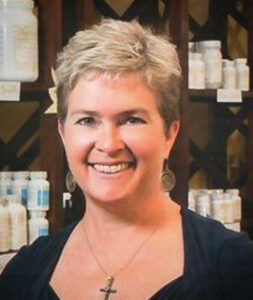According to the National Osteoporosis Foundation, 54 million Americans are at risk of developing osteoporosis.
This number is only going to increase as the population ages. One of the biggest risk factors for osteoporosis is menopause.
During this time in a woman’s life, her body undergoes many changes that can lead to a decline in bone health.
Thankfully, there are steps you can take to reduce your risk of developing osteoporosis. In this blog post, we will discuss how bioidentical hormones can help keep your bones healthy during menopause!
First of all, what is bone density and how is it measured?
Bone density is a measure of how much calcium and other minerals are in your bones.
It is usually measured using a test called dual-energy X-ray absorptiometry (DXA).
This test can be done on any part of the body, but it is most often done on the hip and spine. The results of the DXA test are used to diagnose osteoporosis, osteopenia (low bone density), and other conditions.
What exactly are osteopenia and osteoporosis?
Osteopenia is a condition in which bone density is lower than normal but not low enough to be classified as osteoporosis.
Osteoporosis, on the other hand, is a condition in which bone density is so low that bones are more likely to break. Both of these conditions are serious and can lead to additional health problems.
What are the risk factors for osteoporosis?
There are many risk factors for osteoporosis, but the most common ones are aging, being female, having a small body frame, and having a family history of osteoporosis.
Other risk factors include smoking, drinking too much alcohol, not getting enough calcium or vitamin D, and being physically inactive.
What happens during menopause?
As we age, our bodies produce less and less estrogen. This decline in estrogen can lead to changes in our bodies, one of which is a decrease in bone density.
Estrogen helps to keep our bones healthy and strong, so when levels start to decline, it’s not surprising that our risk of developing osteoporosis increases.
How can bioidentical hormones help reduce the risk of osteoporosis?
Bioidentical hormones are hormones that are structurally identical to the hormones our bodies produce. They can be used to treat a variety of conditions, including menopause symptoms.
One of the most common ways bioidentical hormones are used is in the form of hormone replacement therapy (HRT). HRT can help reduce the risk of osteoporosis by replenishing the hormones that our bodies lose during menopause.
Estrogen in particular is important for bone health, and as women approach and go through menopause, their estrogen levels drop.
Studies have shown that HRT can help reduce the risk of osteoporosis and osteopenia in postmenopausal women by increasing estrogen levels.
What are the symptoms of osteoporosis?
Osteoporosis can cause a number of different symptoms, including back pain, loss of height, and fractures.
Fractures are one of the most serious complications of osteoporosis and can occur in any bone, but they are most common in the hip, spine, and wrist. If you have osteoporosis, it is important to talk to your doctor about ways to prevent fractures.
What if I do everything recommended and still suffer from osteoporosis? What do I do then?
There are medical treatments, such as bisphosphonates, that can help treat osteoporosis. However, these treatments are not right for everyone and have several side effects. If you have osteoporosis, it is important to talk to your doctor about all your treatment options.
In conclusion, osteoporosis is a serious condition that can lead to many health problems. Menopause is one of the biggest risk factors for osteoporosis, but there are steps you can take to reduce your risk.
One of the most effective ways to reduce your risk of osteoporosis is by using bioidentical hormones in the form of hormone replacement therapy. If you are pre or postmenopausal, talk to your doctor about whether HRT is right for you. Worried about osteoporosis?
Call our New Braunfels office today to schedule your appointment, 830-627-7979. We can help you determine your current bone density and how to help you avoid having a diagnosis of osteoporosis!

